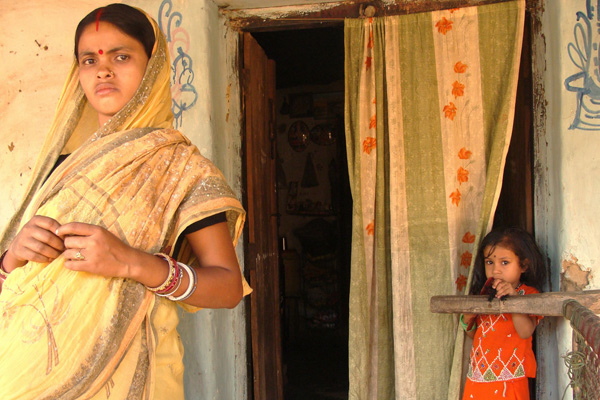
Painkillers in pregnancy may affect baby’s fertility: Study
London, Apr 16 (IBNS): Taking painkillers during pregnancy could affect the fertility of the unborn child in later life, research suggests.
The study identifies that these drugs may also affect the fertility of future generations, by leaving marks on DNA.
The findings add to a growing body of evidence that certain medicines, including paracetamol, should be used with caution during pregnancy.
Current guidelines
Researchers stress that advice for pregnant women remains unchanged.
Current guidelines say that, if necessary, paracetamol – also known as acetaminophen – should be used at the lowest possible dose for the shortest possible time. Ibuprofen should be avoided during pregnancy.
Tissue samples
Scientists at the University of Edinburgh looked at the effects of paracetamol and ibuprofen on samples of human fetal testes and ovaries.
They found similar effects using several different experimental approaches, including lab tests on human tissue samples and animal studies.
Lab tests
Human tissues exposed to either drug for one week in a dish had reduced numbers of cells that give rise to sperm and eggs, called germ cells, the study found.
Ovaries exposed to paracetamol for one week had more than 40 per cent fewer egg-producing cells. After ibuprofen exposure, the number of cells was almost halved.
Experts say this is important because girls produce all of their eggs in the womb, so if they are born with a reduced number it could lead to an early menopause.
Male fertility
Painkiller exposure during development could have effects on unborn boys too, the study found.
Testicular tissue exposed to painkillers in a culture dish had around a quarter fewer sperm-producing cells after exposure to paracetamol or ibuprofen.
Graft studies
The team also tested the effects of painkiller treatment on mice that carried grafts of human fetal testicular tissue.
These grafts have been shown to mimic how the testes grow and function during development in the womb.
Relevant dose
After just one day of treatment with a human-equivalent dose of paracetamol, the number of sperm-producing cells in the graft tissue had dropped by 17 per cent.
After a week of drug treatment, there were almost one third fewer cells.
Future generations
Previous studies with rats have shown that painkillers administered in pregnancy led to a reduction in germ cells in female offspring.
This affected their fertility and the fertility of females in subsequent generations.
Biological mechanism
The scientists found that exposure to paracetamol or ibuprofen triggers mechanisms in the cell that make changes in the structure of DNA, called epigenetic marks.
These marks can be inherited, helping to explain how the effects of painkillers on fertility may be passed on to future generations.
Painkillers’ effects on germ cells are likely caused by their actions on molecules called prostaglandins, which have key functions in the ovaries and testes, the researchers found.
The study, published in Environmental Health Perspectives, was funded by the Medical Research Council, Wellcome and the British Society of Paediatric Endocrinology and Diabetes.
Support Our Journalism
We cannot do without you.. your contribution supports unbiased journalism
IBNS is not driven by any ism- not wokeism, not racism, not skewed secularism, not hyper right-wing or left liberal ideals, nor by any hardline religious beliefs or hyper nationalism. We want to serve you good old objective news, as they are. We do not judge or preach. We let people decide for themselves. We only try to present factual and well-sourced news.







